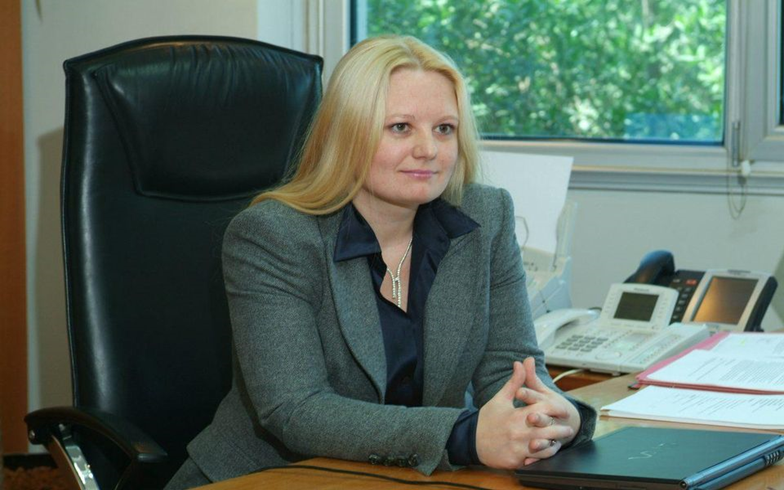On 11 September 2019, the Special Rapporteur on the independence of judges and lawyers published an Allegation Letter to the Government of Kuwait, citing concern for the unfair trial of Ms. Maria Lazareva.
According to the Allegation Letter, Ms. Lazareva is a business executive who worked as the Vice Chair and CEO of KGL Investment Company (KGLI) in Kuwait City. In 2012, Ms. Lazareva was arrested and detained in connection to criminal cases based on allegations of misappropriation of public funds, money laundering, and embezzlement related to her work for KGLI. The Special Rapporteur identified two relevant cases: Case 1942/2015 and the associated appeal Case 1596/2018, as well as Case 1496/2012.
In Case 1942/2015 and the associated appeal, Ms. Lazareva was convicted of embezzlement and sentenced to 10 years of imprisonment on 6 May 2018. During Ms. Lazareva’s appeal process, the judge refused to allow her attorneys to complete their oral submissions and denied Ms. Lazareva access to crucial information on the record, including evidence relied on by the prosecution and translations of court documents. Additionally, the judge refused to disclose potentially decisive exculpatory evidence and did not give Ms. Lazareva the opportunity to call any defense or expert witnesses. Furthermore, even though she paid 11 million Kuwaiti dinar for bail, the judge continued to remand her to custody.
Later in the process, the Head of the Appeal Court removed the first judge and appointed a new judge; however, the new judge also refused to release Ms. Lazareva and denied Ms. Lazareva access to crucial documents and the ability to call any witnesses. On 21 April 2019, the judge recused himself; however, the Head of the Appeal Court denied his recusal and the judge continued as the presiding judge.
On 5 May 2019, the Court of Appeals declared Ms. Lazareva’s conviction void and invalid. Although Ms. Lazareva satisfied her bail of 11 Kuwaiti dinar, the Attorney General did not fully execute the judgment and she remained imprisoned. On 12 July 2019, Ms. Lazareva was finally released only after she paid an additional one million Kuwaiti dinar and her attorney signed a personal guarantee. After the verdict, instead of following protocol and returning the case to the first instance court, the Court of Appeal ordered a de novo review of her case. This action denies Ms. Lazareva the opportunity of a fair trial at first instance.
The Allegation Letter also specified additional concerns about the prosecutor’s conduct. It claims the prosecutor acted in a discriminatory manner when he failed to provide Ms. Lazareva with details of her alleged offenses upon arrest and when he placed her in inadequate conditions during her interrogation. Additionally, the letter claims he failed to provide Ms. Lazareva with adequate time to consult her attorneys and prepare her defense, and leaked information about the pre-trial investigation and ongoing proceedings to the media.
In Case 1496/2012, Ms. Lazareva was accused of misappropriating Kuwait Port Authority (KPA) funds. This case was joined with other cases where she was accused of misappropriate public funding and money laundering. According to the information received by the Special Rapporteur, there is no evidence that Ms. Lazareva stole or misappropriated funds; thus, there is no basis to prosecute Ms. Lazareva. However, the prosecutor still pursued the charges. The Special Rapporteur also noted that two of the judges appointed to Ms. Lazareva’s case sat in separate criminal proceedings, which violates Ms. Lazareva’s due process rights.
On 17 August 2019, KPA released a statement to the press, which made a series of accusations and threats directed at the international law firms assisting Ms. Lazareva. The statement continues by characterizing the actions of KGL as attacks against Kuwait that should be treated as treason. The Special Rapporteur noted that based on the information it received, the KPA, as a government institution that plays an important role in Ms. Lazareva’s case, sought to threaten, intimidate, and hinder the work of Ms. Lazareva’s attorney. The Allegation Letter noted that KGA published the press release just several weeks before the next hearings on Ms. Lazareva’s case. On 11 November 2019, the Kuwait court sentenced Ms. Lazareva to 15 years in prison.
The Allegation Letter also cited concern for the judge’s disregard for Ms. Lazareva’s health, after the judge refused to allow her to leave a court hearing on 6 May 2018 despite her feeling sick and told her to vomit in the back of the courtroom. Additionally, after she was released on bail, the prison apparently put Ms. Lazareva under extensive surveillance without proper judicial authorization.
Based on the concerns identified, the Special Rapporteur asked the Kuwaiti government to review the attached Annex on Reference to International Human Rights Law, which cited the relevant international human rights instruments and standards. The Special Rapporteur also requested that the Kuwaiti government provide additional information regarding Ms. Lazareva’s case and any measures that the government has taken to ensure Ms. Lazareva’s rights under international law are adhered to. Finally, the Special Rapporteur requested that the Kuwaiti government respond to his request for information within 60 days and urged that all necessary interim measures be taken to halt the alleged violations.





